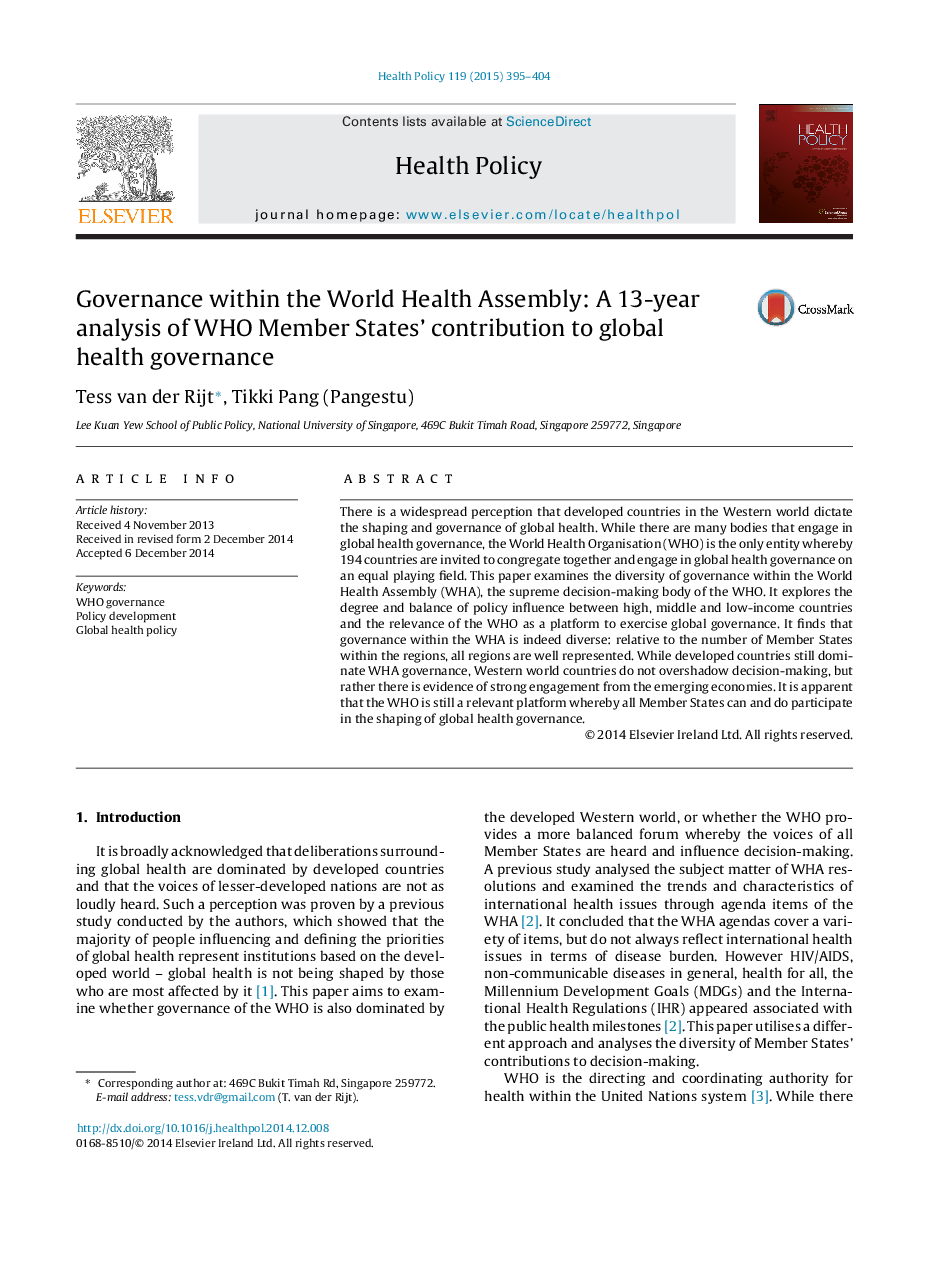| کد مقاله | کد نشریه | سال انتشار | مقاله انگلیسی | نسخه تمام متن |
|---|---|---|---|---|
| 6239495 | 1278998 | 2015 | 10 صفحه PDF | دانلود رایگان |

There is a widespread perception that developed countries in the Western world dictate the shaping and governance of global health. While there are many bodies that engage in global health governance, the World Health Organisation (WHO) is the only entity whereby 194 countries are invited to congregate together and engage in global health governance on an equal playing field. This paper examines the diversity of governance within the World Health Assembly (WHA), the supreme decision-making body of the WHO. It explores the degree and balance of policy influence between high, middle and low-income countries and the relevance of the WHO as a platform to exercise global governance. It finds that governance within the WHA is indeed diverse: relative to the number of Member States within the regions, all regions are well represented. While developed countries still dominate WHA governance, Western world countries do not overshadow decision-making, but rather there is evidence of strong engagement from the emerging economies. It is apparent that the WHO is still a relevant platform whereby all Member States can and do participate in the shaping of global health governance.
Journal: Health Policy - Volume 119, Issue 3, March 2015, Pages 395-404